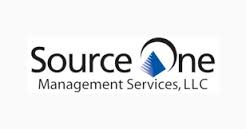
Supply Chain Management, specifically procurement, is becoming a popular career choice for many young professionals. Aside from the field having such a high demand, many people choose to get involved in the procurement side of Supply Chain Management because they enjoy data analytics, the thrill of negotiating, engaging clients and suppliers, and for many, they just have an overall love for business. Procurement has been capturing the attention of many individuals over the past few years as it is rapidly expanding and rising to popularity. As one young procurement professional to another, I’m going to lay out five tips that will lead entry-level employees to success as they begin a career in procurement.
Tip #1: Do your research: When you start a new job, it’s understandable that you’re not going to know everything. What would be the point in taking on a position without an opportunity to grow? With the idea of continuous learning in mind, research is going to be the young procurement professional’s key to success. Working with different stakeholders in a variety of business units, doing your homework will not only prove that you’re ready and willing to understand your internal or external customer, but also improve your performance on the project. The more context you build, the easier it will be to engage internal stakeholders or clients and suppliers. Ultimately, performing the necessary research will not only further your education and build subject-matter expertise, it will also make the process much smoother if you know what we’re getting into before you get into it.
Tip #2: Pay attention to detail: In procurement, there are a ton of moving pieces, between communicating between clients and suppliers, evaluating data, keeping the RFx process in motion, and identifying process improvements along the way. Not only is it important to be organized with all of the information we are exposed to, but it is crucial to be especially mindful of details. Details such as invoice information, scopes of work, quotations, bids, and contract information are going to be very important to have when it comes to moving into the various stages of the procurement and sourcing processes. If we are fully aware of the details involved in our projects, we can lay out a better, more effective strategy that will have a stronger impact. This will result in greater savings and a more efficient supply chain.
Tip #3: Be clear, concise, and professional with everything: Keep a professional tone with every phone call and email you send to clients, suppliers, potential clients, and supervisors. This tip applies to nearly all career choices, not just in the procurement field. There is a lot of emphasis on establishing and maintaining supplier and customer relationships in procurement, which means clear and professional communication is a must. By maintaining excellent communication, it’s important to be direct rather than beating around the bush in almost all scenarios. As it is in many fields, there are countless deadlines that must be met, and it’s a best practice to be direct. People are not mind readers. This is especially important during the negotiation phases so strategies are optimized and information is clear for both parties involved. As a young procurement professional, keeping communication clear, concise, and professional will only be beneficial.
Tip #4: Treat suppliers like strategic partners: Suppliers play a huge role in a supply chain. In fact, without them, a supply chain may be very hard to manage (depending on the industry and product). In many cases, companies cannot make every single product in-house. With the help of suppliers, the process is much easier and can become more cost efficient. If a company wants their supply chain to be successful, they will recognize that their suppliers are capable of being strategic partners and they will work to develop and maintain strategic relationships with them. In the world of procurement, we are encouraged to help enhance these client-supplier relationships and as a result, the process will become much smoother. With larger suppliers, it can be beneficial to have a strong relationship with them because if a company feels a cost reduction initiative is necessary, the supplier will be more willing to work and fight to keep the client’s business due to the well-maintained relationship.
Tip #5: Be creative when developing strategies: Similar to many situations, there is no one way to accomplish a project in procurement. One strategy doesn’t fit all scenarios, nor does one strategy apply to all client needs. For employees in this field, it is going to be highly beneficial to build a creative mindset, especially when it comes to developing strategies to achieve savings. Developing a sense of creativity within our work will allow us to stand out from the crowd (and the competition) by being able to come up with innovative and customized strategies to accomplish goals. When developing creative strategies, it’s a good idea to establish a general strategic process, which can be applied and adapted to fit every project while maintaining a level of customization for the client’s varying needs. As young procurement professionals dive deeper into their careers and gain more experience, they will uncover many other factors that will contribute to their success. These five tips are great for those who are in their first year or so of professional work. Speaking from experience, these tips are some of the first lessons I learned in my first few months as a young procurement professional. With time, exposure, and developing subject-matter expertise, they can lead young employees to success in the procurement world.
About the Author: Samantha Hoy is an Analyst at Source One Management Services. A recent graduate of Penn State University where she received her B.S. in Business with a concentration in Supply Chain and MIS, Hoy is an early talent on the Source One team helping companies optimize their supply management practices. Passionate about data, Hoy is a proven resource in enabling companies to make informed purchasing decisions through strategic sourcing.
